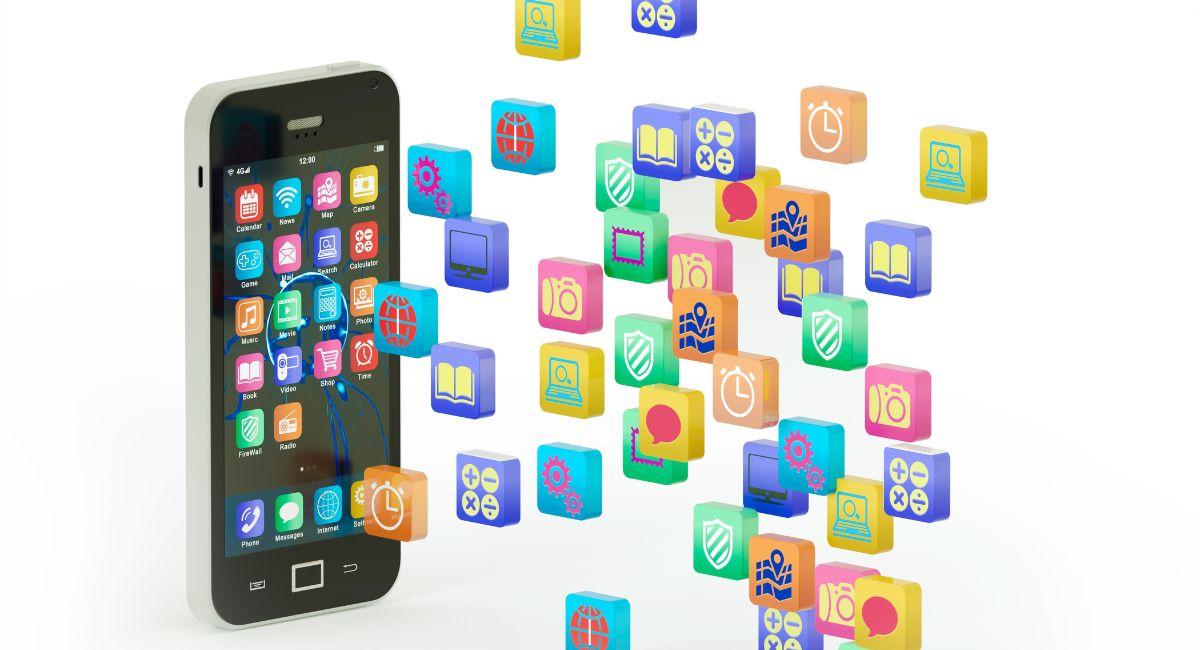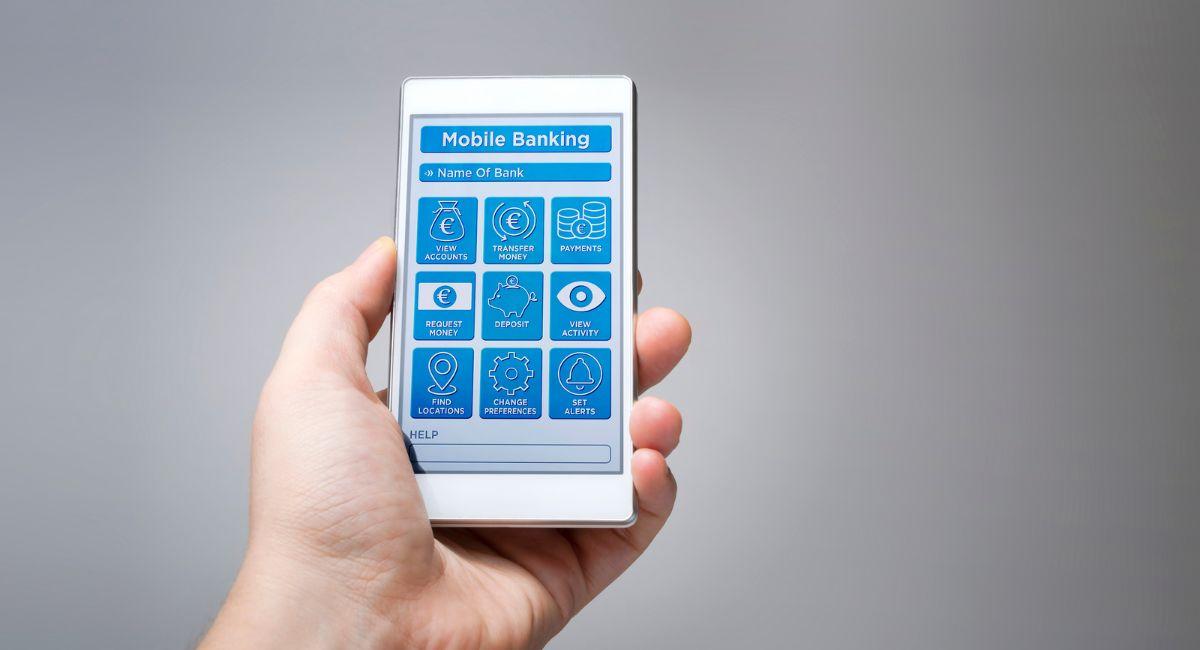Top 10 Apps Made With Blockchain technology That Are Taking Over The World

Blockchain technology is a decentralized and distributed ledger system that enables secure and transparent record-keeping of digital transactions. It gained prominence as the underlying technology for cryptocurrencies like Bitcoin, but its applications extend far beyond the realm of digital currencies.
At its core, a blockchain is a chain of blocks, where each block contains a list of transactions. These blocks are linked together in a chronological order, forming a continuous and unchangeable chain. What sets blockchain apart is its decentralized nature. Instead of relying on a central authority like a bank or government, multiple participants in a network maintain the blockchain through a consensus mechanism.
The decentralization and consensus mechanisms make blockchain resistant to tampering and fraud. Once a block is added to the chain, altering any information within it would require the consensus of the majority of the network, which is computationally infeasible and highly secure. This immutability and security make blockchain an attractive technology for various applications.
One of the primary applications of blockchain is in the realm of cryptocurrencies. Bitcoin, the first and most well-known cryptocurrency, uses blockchain to record and verify transactions. It allows for peer-to-peer transactions without the need for intermediaries, providing a decentralized alternative to traditional financial systems.
Beyond cryptocurrencies, blockchain has found applications in various industries. In supply chain management, it enhances transparency and traceability by recording the journey of products from their origin to the end consumer. This can help prevent fraud, ensure the authenticity of products, and streamline logistics.
Smart contracts, self-executing contracts with the terms directly written into code, leverage blockchain to automate and enforce contractual agreements. This reduces the need for intermediaries and increases efficiency in areas like legal processes and business operations.
Governments are exploring the use of blockchain for secure and transparent record-keeping, ranging from identity verification to voting systems. The healthcare industry is also exploring blockchain to enhance the security and interoperability of patient data.
In conclusion, blockchain technology is a revolutionary concept that provides a secure, transparent, and decentralized way of recording and verifying digital transactions. Its applications extend beyond cryptocurrencies to various industries, promising to reshape the way we manage data, conduct transactions, and establish trust in the digital age.
Also, read- The Impact Of Blockchain Technology In The Legal Industry, Including Smart Contracts And Digital Identities
Importance of blockchain technology

Blockchain technology holds significant importance across various domains due to its unique characteristics and capabilities. Here are some key aspects highlighting the importance of blockchain:
- Decentralization and Trust:
- Blockchain operates on a decentralized network, eliminating the need for a central authority to validate transactions. This decentralization fosters trust among participants as the integrity of the system is maintained through consensus mechanisms. It reduces the risk of fraud, corruption, and manipulation.
- Enhanced Security:
- The use of cryptographic techniques ensures the security of data stored on the blockchain. Once information is added to a block and added to the chain, it becomes extremely difficult to alter or tamper with. This immutability makes blockchain a highly secure solution for storing sensitive data, such as financial transactions or identity information.
- Transparency and Accountability:
- Every transaction recorded on the blockchain is transparent and visible to all participants in the network. This transparency enhances accountability and reduces the potential for disputes, as the entire transaction history is accessible and verifiable by all authorized parties.
- Efficiency and Cost Reduction:
- Blockchain eliminates the need for intermediaries in many processes, reducing the associated costs and increasing efficiency. Smart contracts, for example, automate the execution of predefined agreements, streamlining processes and minimizing the risk of errors. This can result in significant cost savings across various industries.
- Supply Chain Management:
- Blockchain can revolutionize supply chain management by providing a transparent and traceable ledger of the entire supply chain process. This helps in preventing fraud, ensuring the authenticity of products, and improving overall efficiency by providing real-time visibility into the movement of goods.
- Financial Services and Banking:
- In the financial sector, blockchain has the potential to revolutionize traditional banking by offering faster and more cost-effective cross-border transactions. It can also enable financial inclusion by providing banking services to the unbanked populations in remote areas.
- Smart Contracts:
- Smart contracts, self-executing contracts with the terms directly written into code, automate and enforce agreements without the need for intermediaries. This can streamline various processes in industries like legal, insurance, and real estate, reducing administrative overhead and the potential for disputes.
- Data Management and Privacy:
- Blockchain can provide individuals with greater control over their personal data. Users can grant and revoke access to their data as needed, enhancing privacy and giving individuals more say in how their information is utilized.
- Innovation and Research:
- Blockchain serves as a foundation for innovation, encouraging the development of new applications and business models. It has the potential to revolutionize industries by enabling the creation of decentralized applications (DApps) and fostering a more collaborative and open-source approach to development.
Juicy News!
— Bianca™ (@BiancaNaom1) January 30, 2024
The much-anticipated @SaitaRealty website is LIVE!https://t.co/wico8iWXFN is a revolutionary hub for real estate interactions and blockchain technology.
The website provides a safe space for SaitaRealty holders to connect, share and grow.
Dear Kenyans and East… pic.twitter.com/RulDpx6SQb
Top 10 notable blockchain-based Apps:

- Bitcoin (BTC):
- Bitcoin is the first and most well-known blockchain application, functioning as a decentralized digital currency. It enables peer-to-peer transactions without the need for intermediaries, providing a secure and transparent way to transfer value.
- Ethereum (ETH):
- Ethereum is a blockchain platform that goes beyond simple transactions. It enables the creation of decentralized applications (DApps) and smart contracts, allowing developers to build a variety of applications, including decentralized finance (DeFi) platforms, token creation, and more.
- Binance Smart Chain (BSC):
- Binance Smart Chain is a blockchain network that runs in parallel with Binance Chain. It supports smart contracts and provides a platform for the development of various decentralized applications, particularly in the realm of decentralized finance.
- Chainlink (LINK):
- Chainlink is a decentralized oracle network that connects smart contracts with real-world data. It facilitates secure and tamper-proof data feeds, enabling smart contracts to interact with external information, such as market prices or weather data.
- Uniswap (UNI):
- Uniswap is a decentralized exchange (DEX) built on the Ethereum blockchain. It allows users to swap various ERC-20 tokens directly from their wallets, without the need for a traditional exchange. Uniswap plays a significant role in the decentralized finance (DeFi) ecosystem.
- CryptoKitties:
- CryptoKitties is a blockchain-based game on the Ethereum platform where users can buy, sell, and breed virtual cats. Each CryptoKitty is a unique digital asset represented as a non-fungible token (NFT), showcasing the potential of blockchain in gaming and digital collectibles.
- MakerDAO (DAI):
- MakerDAO operates on the Ethereum blockchain and is a key component of the decentralized finance (DeFi) ecosystem. It offers a stablecoin called DAI, which is pegged to the value of the U.S. dollar. MakerDAO uses smart contracts to manage its decentralized stablecoin system.
- VeChain (VET):
- VeChain focuses on blockchain applications for supply chain management and product authenticity. It allows businesses to trace and verify the authenticity of products throughout the supply chain, addressing issues such as counterfeiting.
- Filecoin (FIL):
- Filecoin is a decentralized storage network that incentivizes users to rent out their unused storage space. It enables a marketplace for decentralized storage, where users can buy and sell storage space using the FIL cryptocurrency.
- Theta Network (THETA):
- Theta Network is a decentralized video delivery network built on blockchain technology. It aims to improve video streaming quality and reduce the cost of content delivery by utilizing a peer-to-peer network.
These examples represent a range of applications, from cryptocurrencies to decentralized finance, gaming, supply chain management, and more. It’s important to note that the blockchain space is dynamic, and new applications are continuously emerging, contributing to the ongoing evolution of blockchain technology.
Benefits of making Apps Made With Blockchain Technology

Disadvantages of making Apps Made With Blockchain Technology

While apps built with blockchain technology offer numerous benefits, they also come with certain disadvantages and challenges that developers and users need to consider. Here’s a detailed exploration of the drawbacks associated with creating apps using blockchain technology:
-
Scalability Issues: Blockchain networks face inherent scalability limitations due to factors such as block size, block time, and consensus mechanisms. As the number of users and transactions increases, blockchain networks may experience congestion, delays, and increased transaction fees. Scalability solutions, such as sharding and layer 2 protocols, aim to mitigate these challenges, but implementing and integrating these solutions can be complex and may compromise decentralization and security.
-
Complexity and Technical Expertise: Developing and deploying blockchain-based apps require specialized knowledge of blockchain protocols, smart contract development, cryptography, and decentralized architectures. The learning curve for developers transitioning to blockchain development can be steep, leading to longer development cycles, higher costs, and increased complexity. Moreover, ensuring the security and reliability of smart contracts and blockchain applications requires rigorous testing, auditing, and ongoing maintenance by experienced professionals.
-
Regulatory Uncertainty: The regulatory landscape surrounding blockchain technology and cryptocurrencies is constantly evolving and varies significantly across jurisdictions. Developers of blockchain-based apps must navigate complex regulatory frameworks related to securities laws, data privacy, anti-money laundering (AML), and know-your-customer (KYC) requirements. Compliance with regulatory standards may impose additional costs, administrative burdens, and legal risks on app developers, particularly in highly regulated industries such as finance, healthcare, and gaming.
-
Energy Consumption and Environmental Impact: Proof of Work (PoW) consensus mechanisms, used by prominent blockchain networks like Bitcoin and Ethereum, consume substantial amounts of computational power and energy to validate transactions and secure the network. The energy-intensive nature of PoW mining contributes to concerns about environmental sustainability and carbon emissions. While some blockchain projects are exploring alternative consensus mechanisms, such as Proof of Stake (PoS) or delegated proof of stake (DPoS), transitioning to more energy-efficient protocols presents technical and governance challenges.
-
Privacy and Scalability Trade-offs: Achieving both privacy and scalability in blockchain-based apps often involves trade-offs between different design considerations. While public blockchains offer transparency and decentralization, they may compromise user privacy by exposing transaction details to all network participants. On the other hand, private or permissioned blockchains prioritize privacy and data confidentiality but may sacrifice decentralization and censorship resistance. Balancing these competing requirements requires careful architectural decisions and trade-off analysis.
-
User Experience and Adoption Barriers: Blockchain-based apps may face adoption barriers related to user experience, usability, and familiarity with blockchain technology. Complex wallet management, cryptographic key management, and transaction confirmation times can create friction for mainstream users accustomed to traditional centralized applications. Improving the user experience and onboarding process for blockchain apps requires intuitive interfaces, educational resources, and seamless integration with existing platforms and services.
In summary, while blockchain technology offers transformative potential across various industries, developers and users must be mindful of the challenges and limitations associated with building and using blockchain-based apps. Addressing scalability, complexity, regulatory, environmental, privacy, and adoption concerns requires collaborative efforts from stakeholders across the blockchain ecosystem to realize the full benefits of decentralized innovation.
Conclusion
In conclusion, blockchain technology has catalyzed the development of various applications across diverse industries, showcasing its versatility and transformative potential. The examples mentioned, from cryptocurrencies like Bitcoin to decentralized finance (DeFi) platforms, gaming, supply chain management, and decentralized storage, illustrate the wide-reaching impact of blockchain.
The decentralized and secure nature of blockchain provides a foundation for trust, transparency, and efficiency in a variety of use cases. As technology continues to evolve, it is likely to influence even more aspects of our digital lives, offering innovative solutions to longstanding challenges.
The emergence of non-fungible tokens (NFTs), decentralized applications (DApps), and advancements in blockchain interoperability contribute to the dynamic landscape of blockchain applications. Moreover, the technology’s ability to enable smart contracts, streamline financial transactions, and enhance data integrity underscores its significance in reshaping traditional paradigms.
Looking ahead, ongoing research and development, as well as increasing adoption by businesses and individuals, suggest that blockchain will play a pivotal role in the future of technology and global transactions. The examples provided represent just a snapshot of the potential applications, and as the technology matures, we can anticipate even more groundbreaking solutions and innovations driven by blockchain.




























































